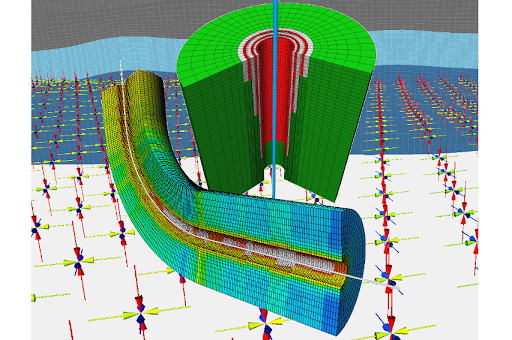Course Details
Your Growth, Our Mission

Course Description
The Training Course Will Highlight ?
Training Objective
Upon completion of the course, participants will:
- Understand the importance of geomechanics and its applications in oil and gas industry.
- Learn the theory of rock mechanics (e.g. theories of stress and strain, rock deformation and failure etc.)
- Learn the data requrement for geomechanical modeling.
- Be able to design rock mechancs testing program and QC the results
- Be able to bulid geomechanical models using Excel sheet (including stresses and rock properties calculations).
- Be able to define safe operating mud weight window.
- Be able to find the safest well trajectory to drill by generating polar plots.
- Understand the effect of rock anisotropy.
- Be able to verify and calibrate wellbore models.
- Learn about wellsite wellbore instability identification
Target Audience
Geologists, geophysicists, drilling engineers, production engineers, completion engineers, reservoir engineers, exploration supervisors and managers concerned with wellbore stability, sand production, screenless completions, fracture stimulation, overpressures or image log interpretation.
Training Methods
This interactive Training will be highly interactive, with opportunities to advance your opinions and ideas and will include;
- Lectures
- Workshop & Work Presentation
- Case Studies and Practical Exercise
- Videos and General Discussions
Daily Agenda
Module I: Geomechanical Modeling and the Applications
Introduction to Geomechanics
- Overview and history
- Importance
- Geomechanical model
- Anderson faulting theory and stress regimes
Theories and Background
- Principles of stress and strain
- Rock deformation and mechanical behavior models
- Rock failure mechanisms and criteria
Overview of Petroleum Applications
- Sand production prediction
- Hydraulic fracturing
- Fault seal analysis
- Production optimization from natural fractures
- Fractured reservoir modeling
- Compaction and subsidence
- Casing collapse and shear
- Salt bodies modeling
- Multi lateral junctions
Geomechanical Modeling
- Concepts
- 1D to 3D models
- Rock property modeling
- Pore pressure prediction
- Stress modeling
Module II: Wellbore Stability Analysis
Introduction and definitions
- What is wellbore instability
- Wellbore instability cost for industry
- Factors affecting wellbore stability
- General modes of instability
- Yielded zone and borehole breakouts
- How to control borehole breakouts
- Instability consequences
Analysis and outcomes
- Stability models- 3D linear elastic models
- - Poroelastic models
- - 2D linear elastic models
- - Elastoplastic models
- Prediction of yield zone dimensions around the borehole
- Calculation of collapse gradient
- Calculation of fracture gradients
- Safe operating mud weight window
- Casing and mud design
- Wellbore stability for deviated and horizontal wells
- Well trajectory optimization
Special cases
- Accounting for hydraulic communication effects
- Accounting for weak bedding planes
- Time-dependent wellbore instability
- Chemical wellbore instability
- Wellbore stability in fractured formations
- Wellbore stability in salt bodies
- Identifying wellbore instability on the rig
- Wellbore stability for UBD
- Field examples
Accreditation
BTS attendance certificate will be issued to all attendees completing minimum of 80% of the total course duration.
Quick Enquiry
Request Info
Related Courses
Your Growth, Our Mission

